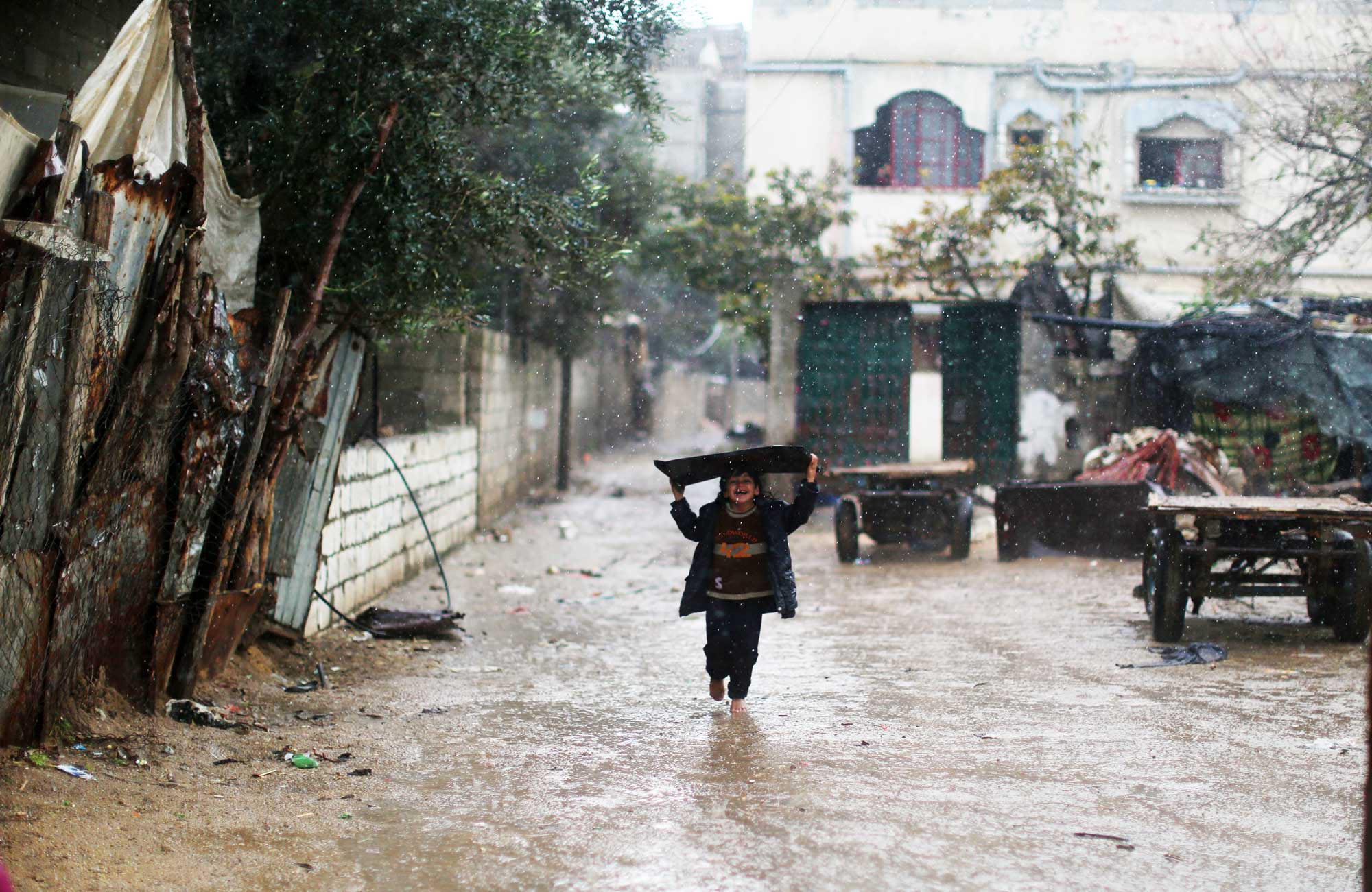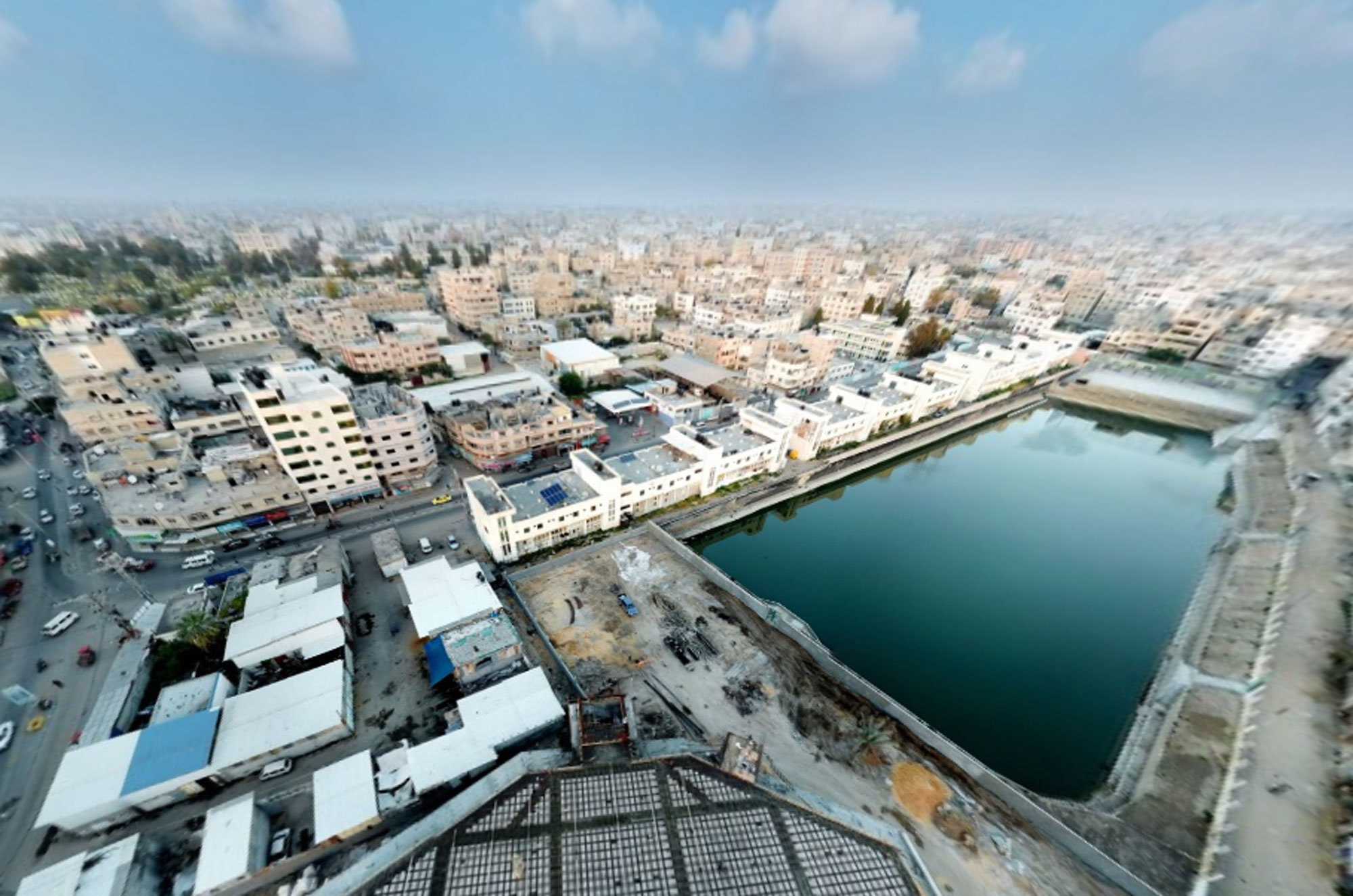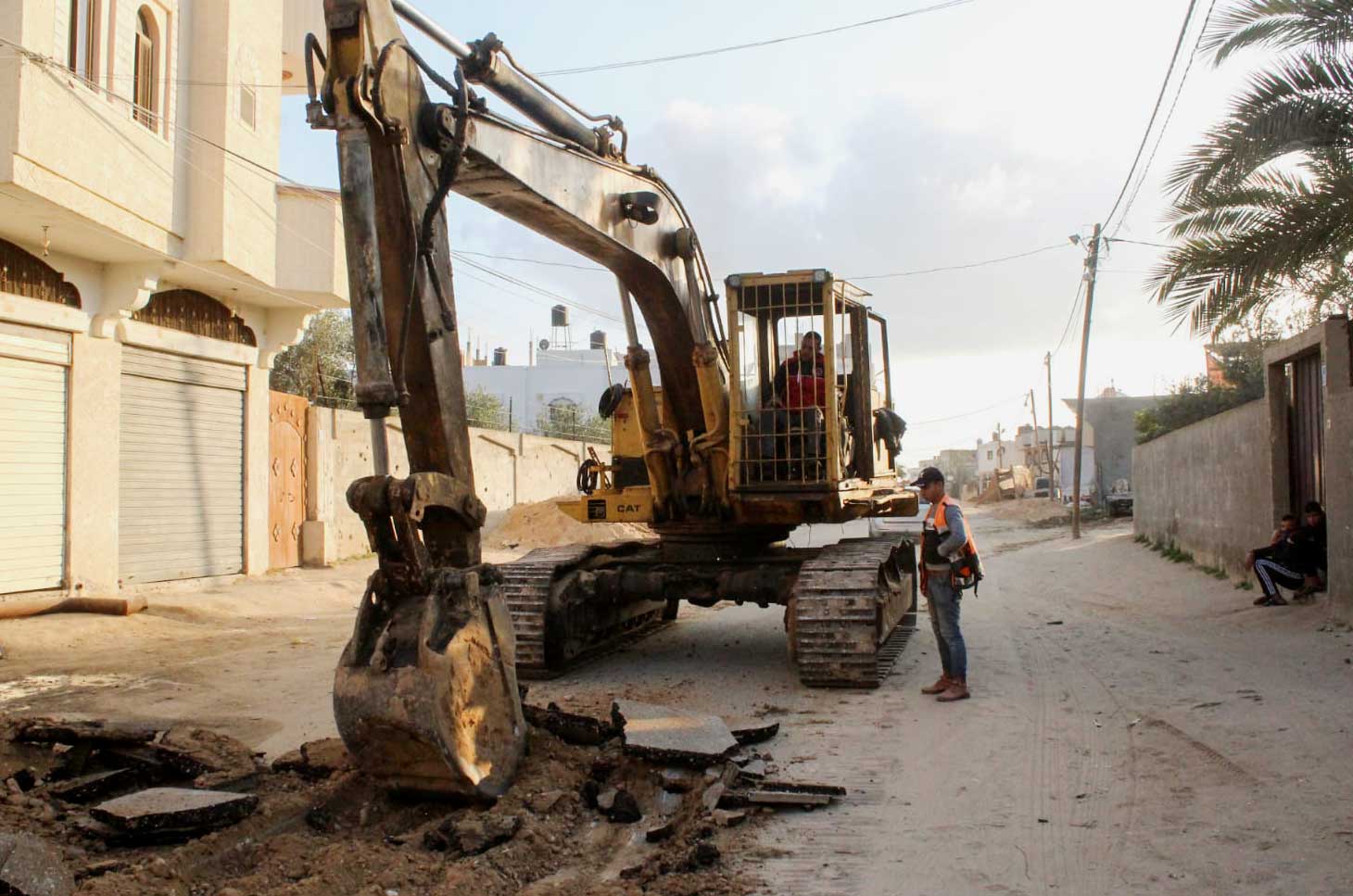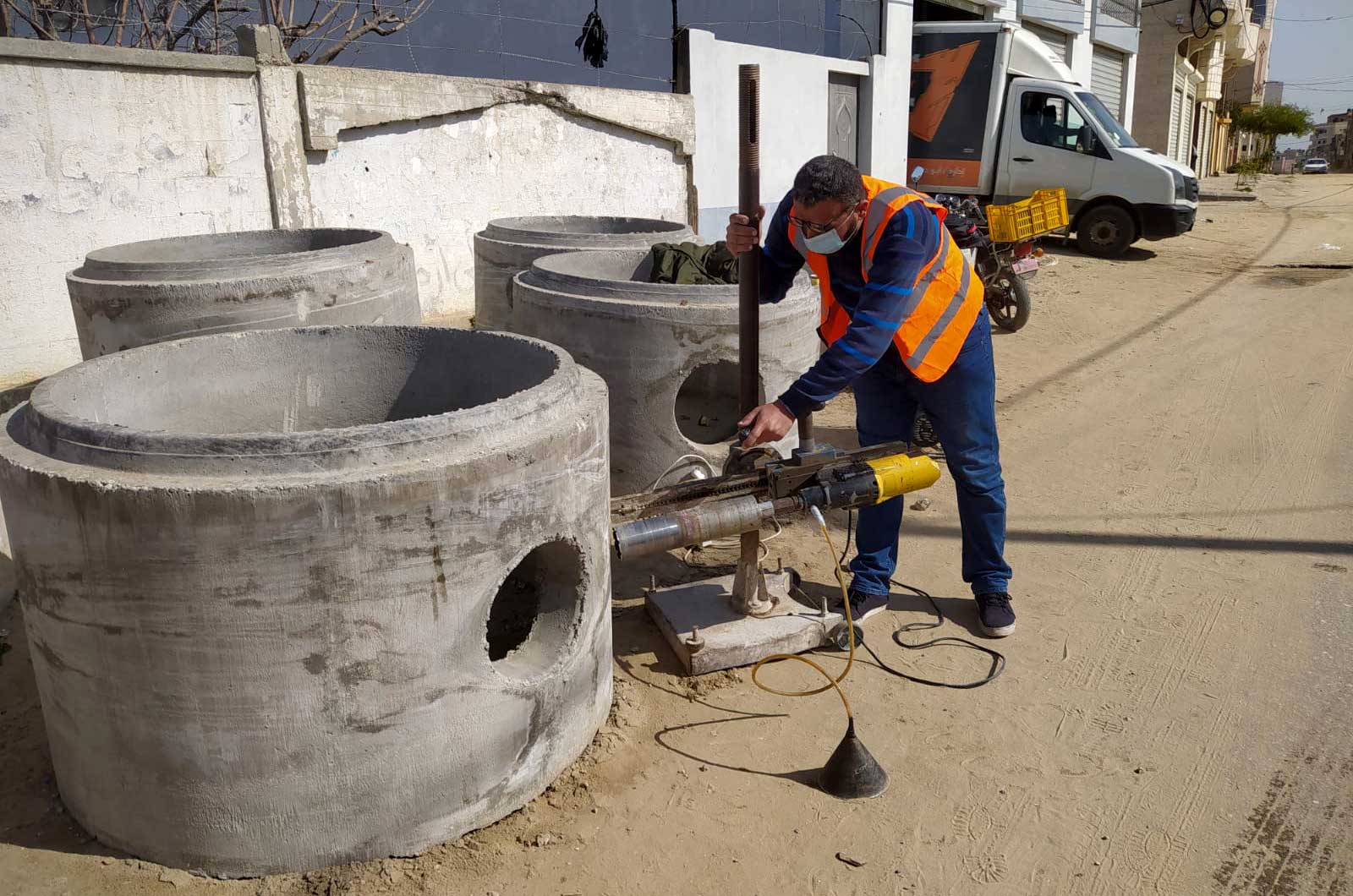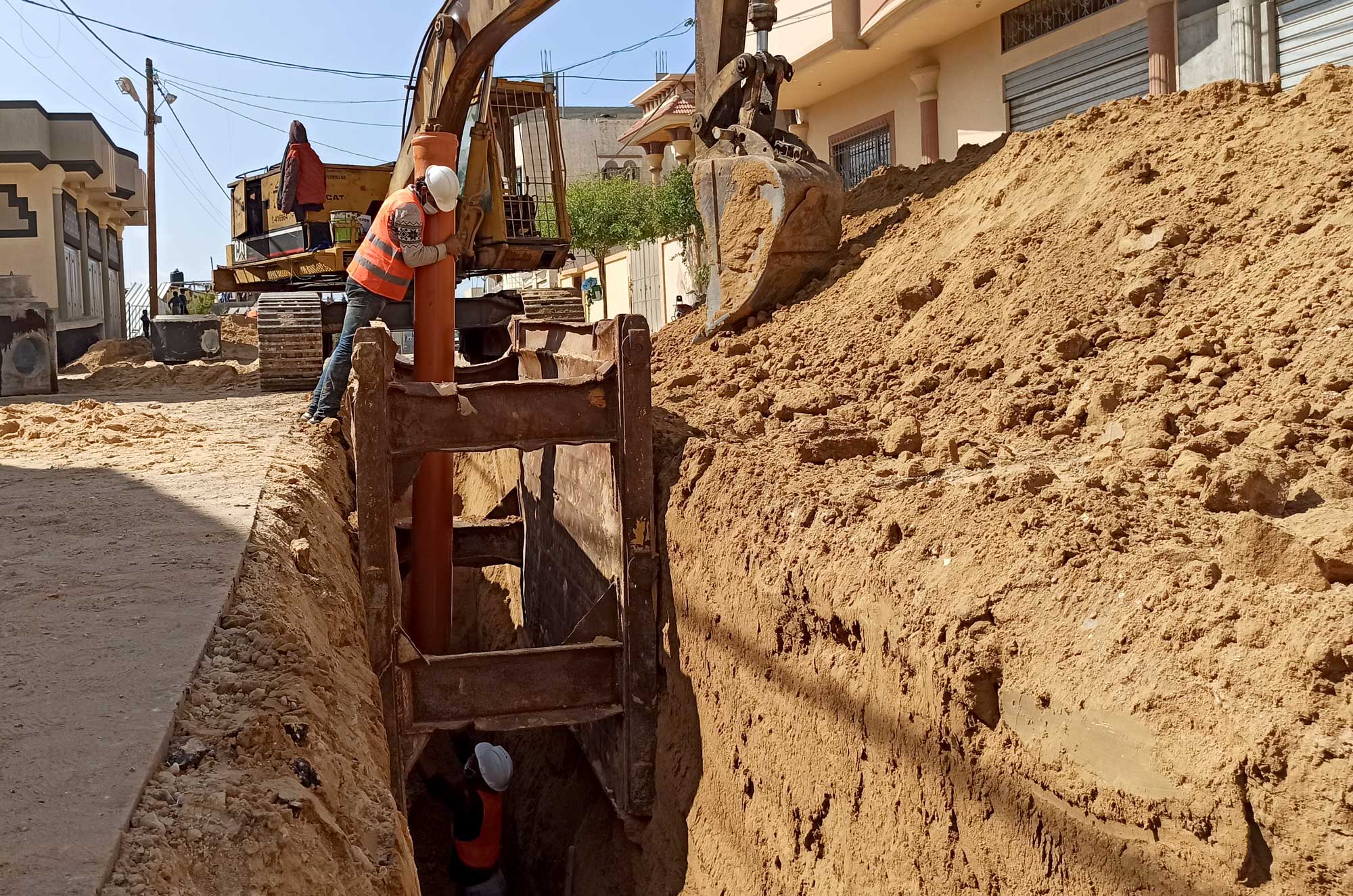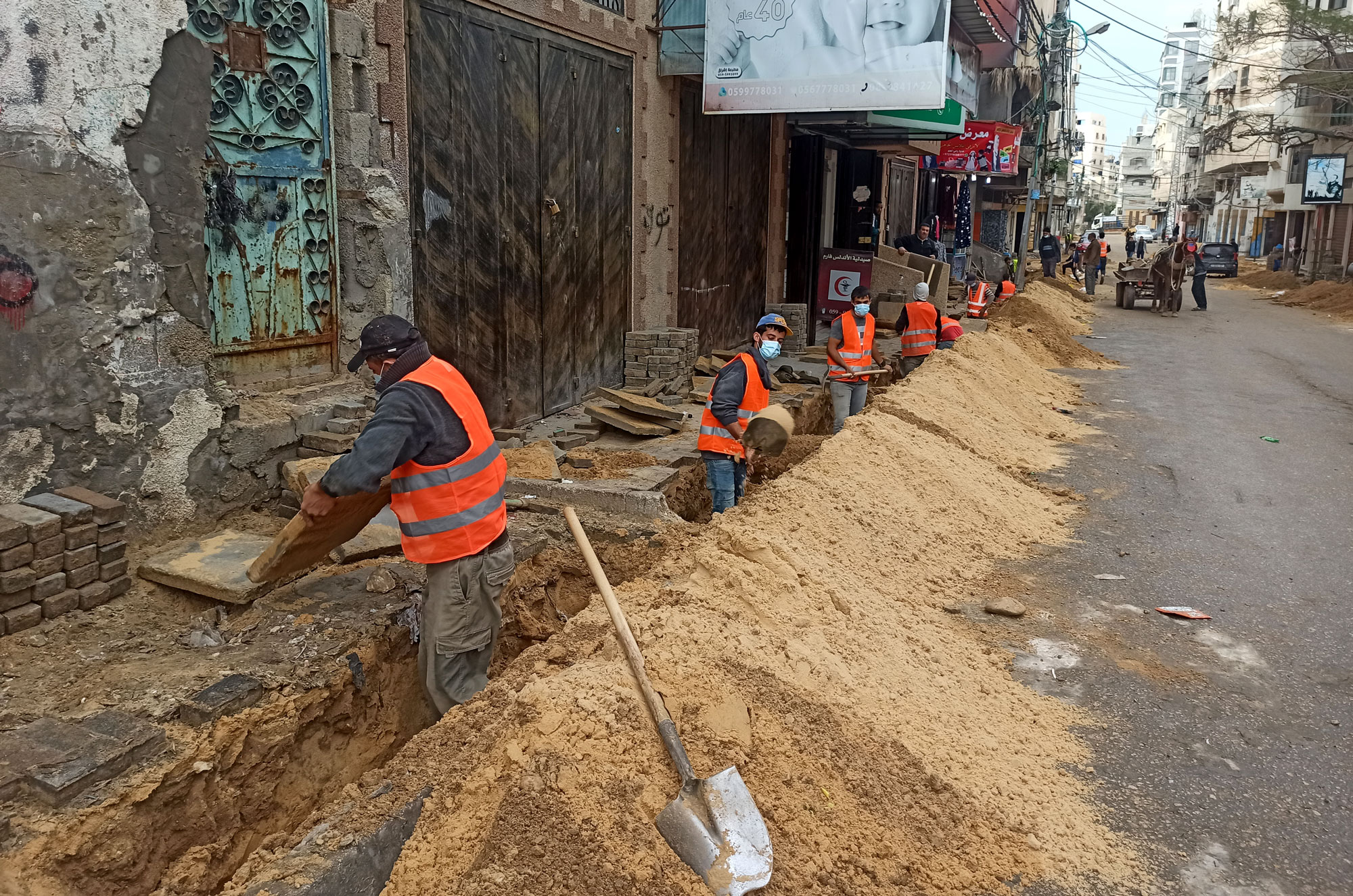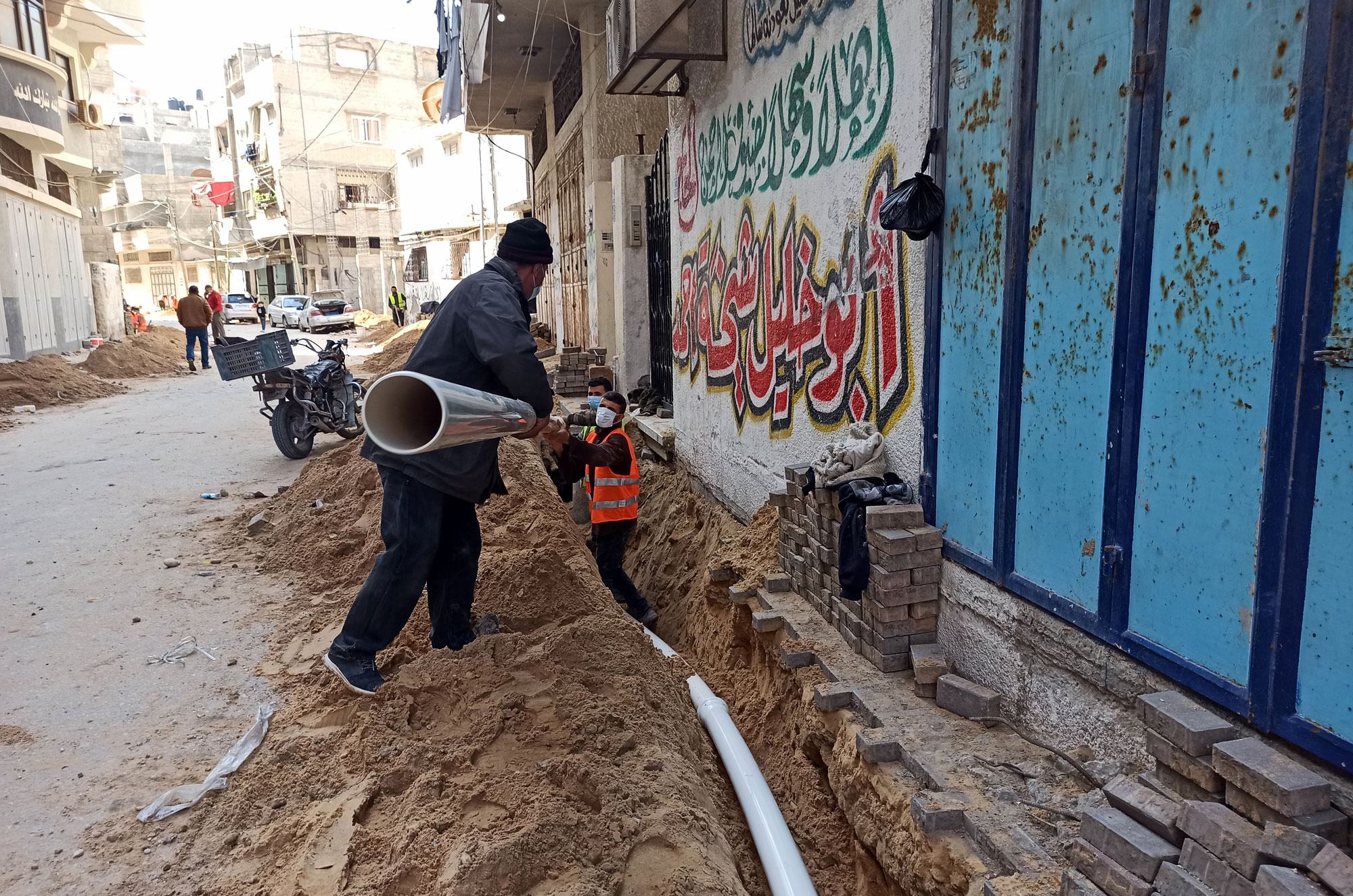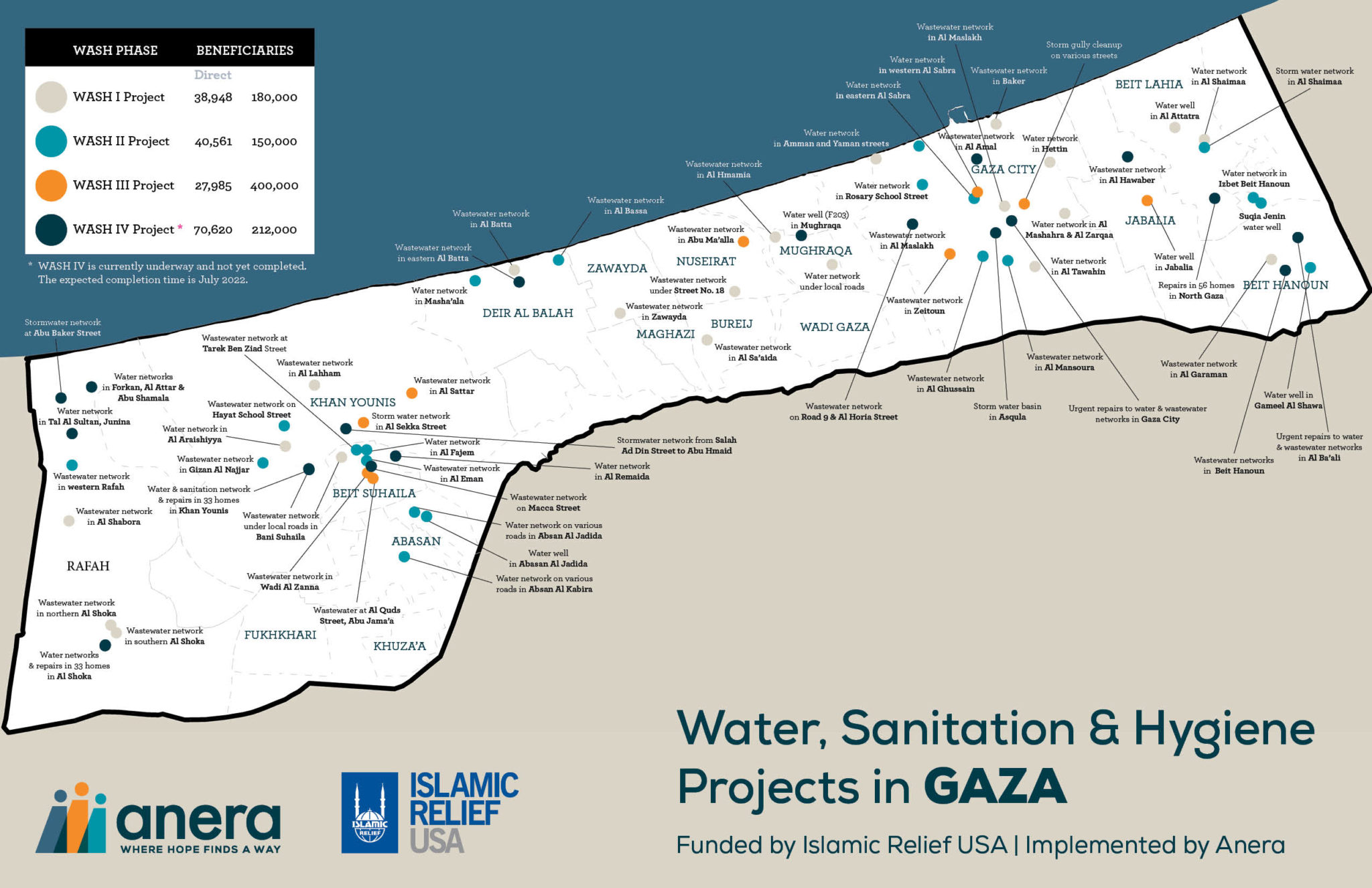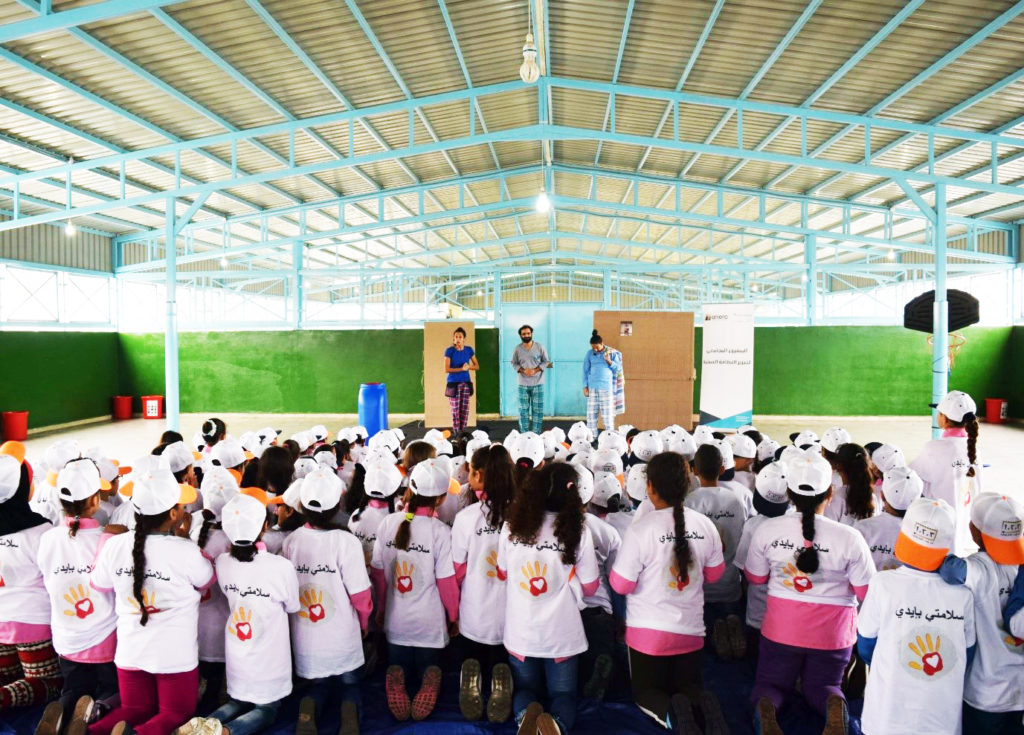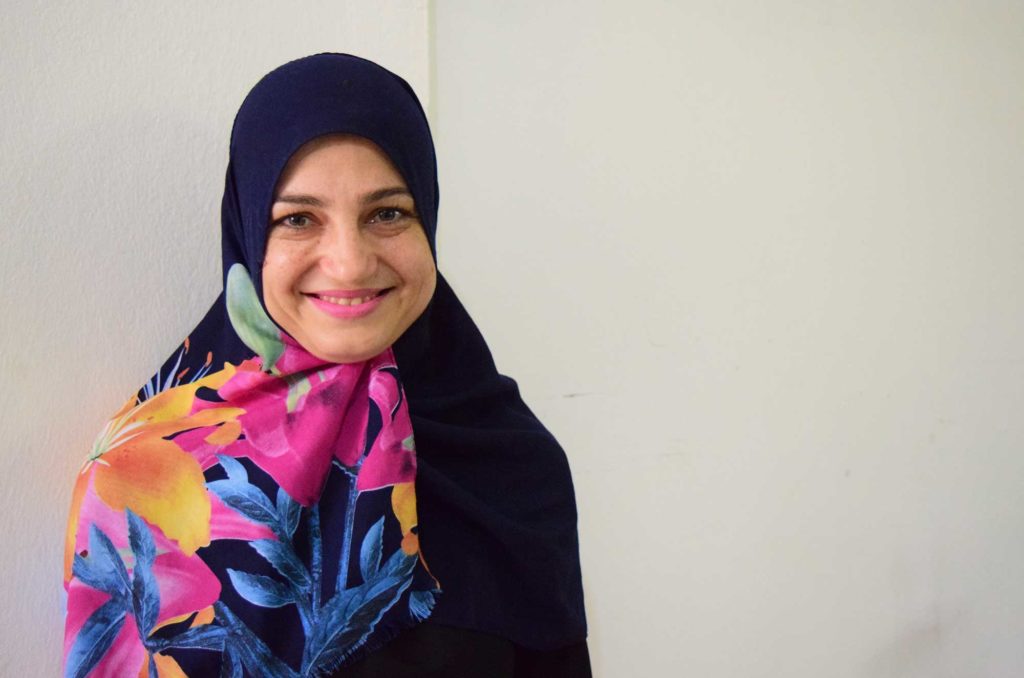HEALTH
Anera’s Water, Sanitation and Hygiene Program in Gaza
Aug, 2021
With years of support from Islamic Relief USA, Anera’s water, sanitation and hygiene program now serves 44% of Gazans.
The Dire Situation in Gaza
Residents of Gaza face great challenges in managing sewage and accessing clean water. The territory's physical isolation has strangled the economy. The politics of the region limit Gaza's access to and control over natural resources. Regular Israeli military operations destroy infrastructure. Frequent electricity outages mean cuts in water and sanitation services. Climate change brings higher temperatures, reduced rainfall, and more severe weather events. These issues combine to create poverty, strain social systems and deplete available resources.
Gaza relies on its coastal aquifer as its primary source of water. Years of decreased rainfall and over-extraction have depleted this precious natural reservoir. The water gets more salinated and polluted as the levels go down, making it unfit for drinking. Ninety percent of Gaza residents and institutions buy their water from desalination plants. And half of those plants are not monitored or regulated.
Gaza releases 28.5 million gallons of wastewater into the Mediterranean every day. That's 43 Olympic pools of wastewater! Some 72% of families in Gaza don't have a safe means of solid waste disposal. Septic tanks collect waste at homes. Once filled, families have the waste emptied into municipal tanks. But it costs money that many families can't afford, and trucks are not always available to pick up the waste. Sewage then builds up and overflows.
The Good News
Anera gives Gaza residents and organizations access to water, sanitation and hygiene (WASH) systems. Our major funding for WASH comes from Islamic Relief USA (IRUSA). Their support over the past six years has allowed Anera to put in place more than 50 WASH projects across Gaza. Anera’s WASH programs in Gaza now serve 44% of Gazans. By July 2022, we will reach 50% of Gazans — fully 1 million people — through our WASH programs.
Replenishing the Gaza Aquifer
To help increase the capacity of Gaza’s aquifer, Anera is renovating the storm water basin in Asqula, which serves 100,000 residents of six communities in Gaza City. The basin was built some 35 years ago and it is in bad shape. According to Gaza municipal reports, only 10% of rainwater now filters down into the aquifer because of the poor permeability of the soil layers currently in the basin to clean the water as it goes into the aquifer. The remaining 90% of the fresh water ends up being pumped into the sea! Anera is removing the accumulated dirt above the basin and replacing the soil and sand filter. We are also excavating and filling 35 boreholes that are blocking rainwater from entering the aquifer. Anera's renovations will enable the basin to maximize its collection of rainwater, which means less waste of precious rain water.
Rehabilitating Wastewater Networks, Protecting the Aquifer and Mediterranean
To mitigate the health and environmental damage of sewage, Anera installs underground tunnel systems for transporting sewage, removing waste from homes and pumping it to facilities for treatment.
An old wastewater network in the Al Hawaber area of Jabalia contained undersized and aging pipelines that caused chronic sewage flooding. The flooding contaminated the Al Saftawi stormwater basin's aquifer and collected stagnant water. Anera replaced the existing wastewater network and made 160 household connections to the new network, benefiting more than 3,000 residents of the area. The connections prevent groundwater contamination and seasonal flooding.
In Bani Suhaila, residents of Macca Street relied on cesspits to dispose of waste. The cesspits contaminated the adjacent aquifer and caused regular sewage flooding. Anera installed a new network to prevent future contamination, mitigating sewage flooding and decreasing waterborne illnesses. Anera also connected 156 households to the new wastewater network, benefiting 1,000 residents.
Homes in the Deir Al Balah Refugee Camp have poor wastewater network connections that cause contamination of the Mediterranean and the camp's groundwater. Anera will soon be installing a new wastewater network that will prevent flooding and contamination, benefiting 2,500 residents.
Giving Families Access to Water at Home
Before Anera's intervention, residents of the Al Amal neighborhood in Gaza City did not have access to safe, reliable water supplies in their homes. Their water network consisted of dilapidated, undersized pipes that couldn’t handle the demands of an ever-growing population. And the community could not afford the needed repairs. Anera upgraded their water networks and connected 680 homes to the network, benefiting some 5,000 residents. Now water doesn’t leak through old pipes and the water pressure to people’s homes is consistently good.
For many communities in Gaza, municipal wells are their main source of water. They are dotted all over the area. Most were built in the 1970s or 1980s and are now deteriorated and very inefficient at pumping water. IRUSA has funded the renovations of five wells in Gaza during our partnership. Currently, Anera is reconstructing a sixth. It is a well in Moghraqa, which sustained damage from a 2018 military conflict. The municipality does not have the means to repair the well. Anera is stepping in to do a critical overhaul of the existing structures and pumps. Our work also includes installation of a chlorination system, a central electrical power grid, a reverse osmosis unit to clean the water, and a drinking fountain for area residents to use. The well will be run with a new solar power system, so it is no longer vulnerable to the frequent power outages Gaza experiences. More than 11,000 people will have vastly improved access to water when we complete the work.
Empowering Families With Knowledge About Hygiene Practices
With every infrastructure project comes public awareness sessions for the residents of the impacted area. Our public health professionals hold classes on waterborne illnesses and good hygiene practices in a place where water is of such poor quality. Sessions also include information about COVID-19 and preventing its spread.
Anera has conducted household and community-level hygiene interventions for the Macca Street, Al Amal neighborhood, and Al Hawaber communities. Our staff conducted 62 awareness sessions for 608 women and provided all attendees with a household hygiene kit along with informational brochures and stickers.
To do more to promote household hygiene and cleaning practices, Anera will conduct household visits. Our staff will visit each targeted household twice, passing along information on hygiene, cleaning, disease prevention, and COVID-19 as well as kits with helpful items like sanitation supplies.
Securing a Sustainable Future for Gaza’s Residents
Continued degradation of Gaza’s aquifer threatens to leave it permanently salty and undrinkable — a grim reality that led the United Nations to warn nearly a decade ago that the territory could become unlivable. Anera’s IRUSA-funded WASH infrastructure projects improve the efficiency of water systems and rainwater capture to replenish the aquifer. They play a vital role in ensuring that Gaza remains habitable for its two million residents.
The views expressed herein are those of Anera and shall not, in any way whatsoever, be construed to reflect the official opinion of IRUSA, its Islamic Relief affiliates, or its donors.

